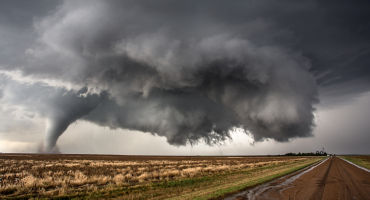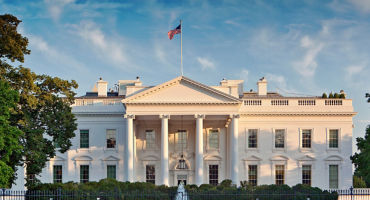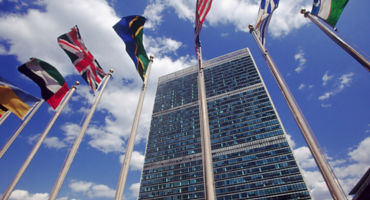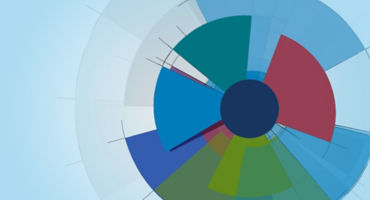You are about to enter a website for institutional investors and intermediaries (as applicable) and the information contained herein is not suitable for retail investors. Your access to and use of the web sites (“Services”) of Wellington Management are conditioned on your acceptance of and compliance with these Terms of Use (“Terms”). Please read these Terms carefully. By accessing or using the Services, you indicate that you understand and intend these Terms to be the legal equivalent of a signed, written contract, and you accept the terms of use as set forth herein and you agree to be bound by these Terms. If you are accepting these Terms and using the Services on behalf of a company, organization, government, or other legal entity, you represent and warrant that you are authorized to do so. You may use the Services only in compliance with these Terms and all applicable local, state, national, and international laws, rules, and regulations.
Ownership
All materials on this web site are owned or licensed by Wellington Management and/or its third-party providers and are protected by US and international intellectual property laws. Unless otherwise indicated, all service marks, trademarks, and logos appearing on this web site are the exclusive property of Wellington Management. The information, materials, and other content of this web site may not be copied, displayed, distributed, downloaded, licensed, modified, published, reposted, reproduced, reused, sold, transmitted, used to create a derivative work, or otherwise used for public or commercial purposes without the express written consent of Wellington Management.
Products and services
The content of this web site is available for informational purposes only. The information, materials, products, and services on this web site are current at the time of writing and are subject to change. You agree to check this web site regularly for updates. Not all products and services are available in all geographic areas. Your eligibility for particular products or services is subject to determination by and the approval of Wellington Management. No solicitation is made by Wellington Management to any person to use any information, materials, products, or services in any jurisdiction where the provision of such information, materials, products, and services is prohibited by law. The posting of content and access to this web site does not constitute, either explicitly or implicitly, any provision of services or products by Wellington Management or any of its respective affiliates.
The information on this web site or in any communication containing a link to this web site is not intended to constitute investment advice or an offer to sell, or the solicitation of an offer to purchase shares or other securities. All web site content is subject to applicable statutes and regulations. The information provided is for informational purposes only and investors should determine for themselves whether a particular service or product is suitable for their investment needs or should seek such professional advice for their particular situation. Please refer to offering documents for further information concerning specific products.
Certain of the statements contained herein may be statements of future expectations and other forward-looking statements that are based on Wellington Management's current views and assumptions and involve known and unknown risks and uncertainties that could cause actual results, performance or events to differ materially from those expressed or implied in such statements. In addition to statements which are forward-looking by reason of context, the words “may, will, should, expects, plans, intends, anticipates, believes, estimates, predicts, potential, or continue” and similar expressions identify forward-looking statements.
Investment products and services are available through Wellington Management. Investment products and services are not FDIC-insured, are not deposits or obligations of, or guaranteed by, any bank, and involve investment risks, including the possible loss of the principal amount invested. Investors should always obtain and read an up-to-date investment services description or prospectus before deciding whether to appoint an investment manager or invest in a fund.
International use
Wellington Management makes no warranties that materials on this web site are appropriate for use in countries other than the US. Because the web site may be accessed internationally, you agree to comply with all local laws, rules, and regulations including, without limitation, all laws, rules and regulations in effect in the country in which you reside and the country from which you access the web site. The information on this web site is not intended for distribution to, or use by, any person or entity in any jurisdiction or country where such distribution or use would be contrary to law or regulation, or which would subject Wellington Management or its affiliates to any registration requirement within such jurisdiction or country.
No Relationship
Wellington Management is an independent contractor and not an agent of you in the performance of these Terms. These Terms are not to be interpreted as evidence of an association, joint venture, partnership, or franchise between the parties. Nothing in these Terms will be deemed to confer any third-party rights or benefits.
No warranty
Wellington Management does not warrant the accuracy, adequacy, completeness, or timeliness of the information, materials, products, and services on this web site or the error-free use of this web site. All information, materials, products, and services are “as is” and “as available.” No warranty of any kind, express or implied, including but not limited to the warranties of non-infringement of third-party rights, title, merchantability, fitness for a particular purpose, and freedom from computer virus is given in conjunction with the information, materials, products, and services. Any views expressed herein are those of the author(s), are based on available information, and are subject to change without notice. Individual portfolio management teams may hold different views and may make different investment decisions for different clients. Wellington Management does not warrant that the web site will meet your needs. You agree to assume the entire risk as to your use of the web site.
Limitation of liability
In no event shall Wellington Management be liable for any damages, losses, or liabilities including without limitation, direct or indirect, special incidental, consequential damages, losses, or liabilities, in connection with your use of this web site or your reliance on or use or inability to use the information, materials, products, and services on this web site, or in connection with any failure of performance, error, omission, interruption, defect, delay in operation or transmission, computer virus, or line or system failure, even if Wellington Management is advised of the possibility of such damages, losses, or expenses.
YOU UNDERSTAND AND AGREE THAT YOUR USE OF THIS WEB SITE IS PREDICATED UPON YOUR WAIVER OF ANY RIGHT TO SUE WELLINGTON MANAGEMENT OR ITS AFFILIATES DIRECTLY OR TO PARTICIPATE IN A SUIT FOR ANY LOSSES OR DAMAGES RESULTING FROM YOUR USE OF THIS WEB SITE.
Indemnification
As a condition of your use of the Services, you agree to indemnify and hold Wellington Management, its affiliates, and its and their respective partners, directors, employees, and agents harmless from and against any and all claims, losses, liability, costs, and expenses (including but not limited to attorneys’ fees) arising from your use of the web site or from your violation of these Terms.
Hyperlinks
Your use of the hyperlinks on this web site to other Internet web sites is at your own risk. Wellington Management is not responsible for the content or accuracy of third-party web sites hyperlinked from this web site, nor does it guarantee the products or services offered on third-party web sites. You should review the privacy statements of a web site before you provide any personal or confidential information.
Web site security and restrictions on use
As a condition to your use of Services, you agree that you will not, and you will not take any action intended to: (i) access data that is not intended for you; (ii) invade the privacy of, obtain the identity of, or obtain any personal information about any other user of this web site; (iii) probe, scan, or test the vulnerability of this web site or Wellington Management’s network or breach security or authentication measures without proper authorization; (iv) attempt to interfere with service to any user, host, or network or otherwise attempt to disrupt our business; or (v) send unsolicited mail, including promotions and/or advertising of products and services. Unauthorized use of the web site or Services, including but not limited to unauthorized entry into Wellington Management’s systems, misuse of passwords, or misuse of any information posted to a web site, is strictly prohibited. Portions of the web site are designated for password access only as indicated by a lock icon. In these instances, if you do not have an authorized password, no access is permitted.
You agree to use all content unmodified and as provided by Wellington Management and with all logos and copyright, trade name, and other proprietary rights notices provided by Wellington (the "Marks") intact and to not modify the content, including but not limited to by removing, altering, or adding any text, graphics, warranty statements, logos, or Marks. You will not re-brand or co-brand the content or data. You agree to use of data as-is and not alter or distribute data. You will not take any action in derogation of Wellington Management's rights in the Marks, including but not limited to applying to register any trademark, trade name, service mark, or other designation that is confusingly similar to any Mark. You will not use the Marks for any purpose.
You will use only content designated for you and will not distribute content to any third parties.
You agree not to: (i) make any representations, warranties or guarantees on Wellington Management's behalf or with respect to the web site, content or data; (ii) make any false or misleading representations with regard to Wellington Management, the site, data or content; or (iii) participate or engage in any illegal, deceptive, misleading, unethical, or improper practices.
Sponsored content
Materials labeled Sponsored Content are the product of a paid promotion or partnership with a third- party content provider. This content has been developed directly by or with assistance from Wellington Management. Wellington has received permission to use this material on this website. Wellington is not responsible for any materials produced by the third-party provider that were not directly commissioned and/or approved by Wellington Management. Please see further information about third-party website content.
Third-party content
Wellington Management may offer links to other third-party websites. When you click on these links you will leave Wellington Management’s website and will be redirected to another site. The links are provided solely for your convenience and for informational purposes only; they do not constitute an endorsement, guarantee, or an approval by Wellington Management of any of the products, services, or opinions of the third party. Wellington Management makes no representation or warranty regarding the accuracy, legality, or content of the third-party site or the links. These sites are not under the control of Wellington Management. Please also be aware that the security and privacy policies on these sites may be different than those of Wellington Management. Please read third-party privacy and security policies closely. If you have any questions or concerns about the products and services offered on linked third-party websites, please contact the third party directly.
Confidentiality and password security
Certain parts of this web site may be protected by passwords or require a login. You are responsible for maintaining the confidentiality of any user names, passwords, security questions, and answers. All information available through the privileged area of the site is confidential and proprietary to us. This includes all investment information and results, offering materials, financial statements, and other information provided through this part of the site.
You will use your best efforts to keep all this information strictly confidential. You will not disclose any of this information to any person or use it for any purpose other than those strictly permitted by us, in writing.
Restrictions
Unless and except as otherwise expressly permitted by these Terms, you may not (a) access, copy, reproduce, modify, create derivative works of, alter, publicly distribute, republish, upload, post, transmit, publicly perform or display, license, transfer, sell, mirror, frame, “deep link,” “scrape,” data mine, or otherwise use any information or material obtained from or through this web site (b) attempt to gain unauthorized access to any portion or feature of the web site or any other systems or networks connected to the web site or to any Wellington Management server or to any of the services offered on or through the web site, by hacking, password "mining," or any other illegitimate or prohibited means, (c) probe, scan, or test the vulnerability of the web site or any network connected to the web site, nor breach the security or authentication measures on the web site or any network connected to the web site, (d) reverse look-up, trace, or seek to trace any information on any other user of or visitor to the web site, (e) take any action that imposes an unreasonable or disproportionately large load on the infrastructure of the web site or Wellington Management’s systems or networks or any systems or networks connected to the web site, (f) use any device, software, or routine to interfere with the proper working of the web site or any transaction conducted on the web site, or with any other person's use of the web site, (g) forge headers, impersonate a person, or otherwise manipulate identifiers in order to disguise your identity or the origin of any message or transmittal you send to Wellington Management on or through the web site, or (h) use the web site in an unlawful manner. Any unauthorized use of this web site or the content on the web site will terminate the permission granted herein and may violate applicable laws, including copyright law, trademark laws, and commercial regulations and statutes.
Events Beyond the Control of Wellington Management
You expressly absolve and release Wellington Management, their respective affiliates, related companies, and all of their respective officers, directors, employees, registered representatives, shareholders, legal representatives, attorneys, agents, successors and assigns, from any claim of harm resulting from a cause beyond its control including, but not limited to, the failure of electronic or mechanical equipment or communication lines, telephone or other interconnect problems, computer viruses or software failures, data breaches, unauthorized access, theft, operator errors, severe weather, earthquakes, or natural disasters, pandemic or epidemic, strikes or other labor problems, wars, acts of domestic or foreign terrorism or governmental restrictions.
Severability
If any provision of these Terms is deemed unlawful, void, or for any reason unenforceable, then that provision will be reformed only to the extent necessary to make it enforceable, and it will be deemed severable from these Terms and will not affect the validity and enforceability of the remaining provisions.
Applicable law
These Terms and any action related thereto are governed by Massachusetts law and applicable US federal law. Any dispute relating to the above shall be resolved solely in the state or federal courts located in Massachusetts.
Privacy statement
Information or material submitted through the web site will be deemed to be the property of Wellington Management. By submitting any information or material to us through the web site, you grant us an unrestricted, irrevocable license to use, reproduce, display, perform, modify, transmit and distribute those materials or information. You also agree that Wellington Management is free to use for any purpose any ideas, concepts, know-how or techniques that you submit to us through the web site. Wellington Management shall not be subject to any obligations of confidentiality regarding submitted information, except as agreed by Wellington Management or as otherwise specifically agreed or required by law.
If you are located in the EU (or are a client or prospect of a Wellington affiliate located in the EU), please click here for additional information provided pursuant to the EU General Data Protection Regulation.
Wellington Management respects the privacy of its clients and the confidentiality of information pertaining to its clients.
Information we collect
We may collect non-public personal information about you on RFPs, questionnaires, and other forms we receive from you, as well as from personal contacts such as correspondence, e-mail, telephone calls, or meetings. We may also receive information about you from third parties, such as your accountants, lawyers, financial consultants, and/or other service providers. It also is possible to receive information from web browsers and apps regarding certain of your online activities using cookies, or other common tracking technologies. Please see our Cookies Policy for more information.
Information sharing
Wellington Management seeks to provide seamless service to all clients. To facilitate that process, personal information regarding client accounts is shared broadly between affiliates within the Wellington Management group of companies. For example, an affiliate may share information with other affiliates in order to facilitate portfolio management or provide client liaison services to a particular client or in order to identify potential client needs for additional investment management services.
Wellington Management generally does not share non-public personal information with unaffiliated third parties, except as necessary to perform the investment management services it has been hired to provide. For example, Wellington Management may share non-public client information with brokers and custodian banks in order to buy and sell securities and record those purchases and sales accurately. As a general rule, Wellington Management does not engage in joint marketing arrangements with unaffiliated third parties that involve the sharing of non-public information regarding Wellington Management’s clients. Wellington Management does not provide client information to unaffiliated third parties for their own marketing purposes.
Wellington Management does not disclose your information except as required or permitted by law. In the event that Wellington Management is involved in a merger, acquisition, reorganization or sale of assets, or bankruptcy, your information may be transferred or sold as part of that transaction.
Security policies
We use technical, administrative, and procedural measures in an attempt to safeguard your personal and other information from unauthorized access or use. Users are responsible for maintaining the secrecy of their own passwords. If you have reason to believe that your interaction with us is no longer secure (for example, if you feel that the security of any account you might have with us has been compromised), please immediately notify us by contacting your relationship team member.
Transfer of data to other countries
Wellington is a global business and as a result we or our third party processors collect and transfer personal data globally and may transfer your personal data to locations outside of your country. Your personal data may also be processed by individuals operating outside your country who work for Wellington or for one of our vendors. Where Wellington transfers your personal data to another country, it is required to do so in a manner consistent with legal requirements.
Copyright and Trademarks
This web site (including the software and files), the computers hosting this web site, content and data provided on this web site are the exclusive property of Wellington Management and/or its licensors, and are protected by applicable laws, including United States copyright, database, trade secret, and trademark law, as well as other state, national, and international laws and regulations. Wellington Management is a trademark or registered trademark of Wellington Management Company in the United States and throughout the world. Wellington Management reserves all rights with respect to its proprietary information or material on this web site and will enforce such rights to the full extent of applicable copyright and trademark law. Except as expressly provided in these Terms, Wellington Management does not grant any express or implied rights to you. All rights in the pages and web site content are owned by Wellington Management and its licensors. You agree not to sell, distribute, publish, broadcast, circulate or commercially exploit web site content in any manner without the express written consent of Wellington Management. Any downloading or otherwise copying from this web site will not transfer title to any software or material to you. Unless otherwise noted Wellington Management and other brands featured on the web site constitute our trade/service marks. You agree not to directly or indirectly: attempt to register, challenge or contest the validity of Wellington Management’s ownership of, such copyrights, trademarks or any other intellectual property of Wellington Management, or assist any third party in doing so. Grant of License
Wellington Management grants to you a personal, revocable, nonexclusive, nontransferable license to use this web site conditioned on your continued compliance with these Terms. Limited portions of the content available in the public areas of the web site may be accessed, printed and downloaded on an occasional basis for personal, scholarly, research or non-commercial purposes; provided that all hard copies contain all copyright and other applicable proprietary rights notices included in such content and information and/or appropriate attribution to Wellington Management in a form and manner acceptable to us. For information on obtaining permission to use any content beyond the uses permitted above, please contact infofunds@wellington.com. Any unauthorized use of this web site or the content will terminate the permission granted herein and may violate applicable laws, including copyright law, trademark laws, and commercial regulations and statutes.
Changes to terms of use
We may revise these Terms from time to time; the most current version will always be at https://www.wellington.com/terms-of-use/. By continuing to access or use the Services after those revisions become effective, you agree to be bound by the revised Terms. At all times, you are bound by the then-current version of the Terms and of all applicable laws.
12th September 2023














Monthly Market Review — August 2024
A monthly update on equity, fixed income, currency, and commodity markets.
By
Brett Hinds
Jameson Dunn